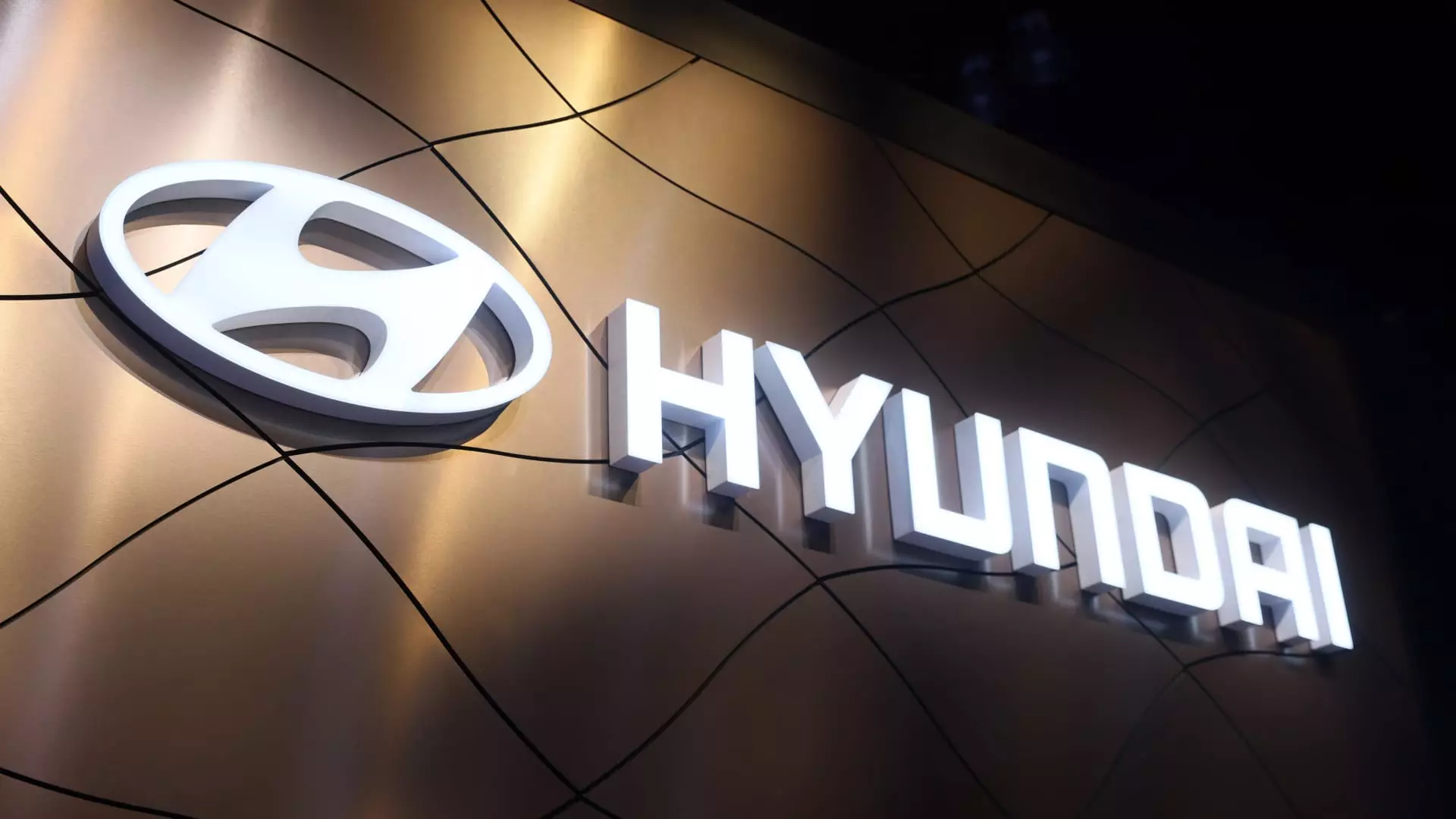In a significant move that raises eyebrows within the automotive industry, Hyundai Motor North America has declared a recall of over 42,000 vehicles, specifically targeting the 2025 models of the Hyundai Santa Cruz and Hyundai Tucson. This recall is primarily prompted by a serious wiring issue that has the potential to endanger drivers and pedestrians alike by allowing the vehicles to roll away unintentionally. The National Highway Traffic Safety Administration (NHTSA) issued this notice, signalling a considerable concern for both safety and consumer confidence in the brand.
According to the NHTSA’s findings, the defective wiring can lead to a disconcerting scenario where the vehicles can shift from the “park” position without the brake pedal necessarily being engaged. This malfunction significantly escalates the risk of accidents or injuries—a matter that no driver should ever have to face. The scope of this issue affecting the Santa Cruz and Tucson models includes more than 35,500 and 6,900 vehicles, respectively. Interestingly, the NHTSA estimates that only about 1% of these vehicles might possess this defect, prompting questions about the effectiveness of Hyundai’s quality control measures during manufacturing.
The Santa Cruz, known for its hybrid pickup truck and SUV characteristics, is positioned as a premium vehicle with a price tag starting over $33,000. Conversely, the Tucson SUV starting at more than $28,000, offers a hybrid version as well, which is anticipated for release later in the fall. However, it’s essential to understand that such recalls can potentially tarnish the perception of upcoming models. Consumers may begin to question the safety standards of vehicles they intend to purchase, particularly when they learn of significant issues related to products from the same line.
Despite the alarming nature of the recall, NHTSA has indicated that owners of the affected vehicles can continue to drive them under certain precautions. They recommend that vehicle owners utilize the parking brake whenever they park, which is a temporary relief measure to mitigate the risk posed by this defect. This suggestion raises additional concerns: should owners of a new vehicle ever have to rely on supplementary safety measures due to manufacturing flaws? The situation necessitates trust in the automotive brand, which can be shaken with such incidents.
Hyundai has claimed that they have not received any reports concerning injuries, crashes, or fatalities connected to these affected models—an assertion aimed at alleviating public concern. Nevertheless, it’s striking that it took an incident involving a corporate fleet vehicle in late October for the issue to come to light. This highlights a potential deficiency in their vigilance regarding vehicle safety and reliability, echoing calls for improved oversight within their manufacturing processes.
This recent recall is not an isolated incident for Hyundai. The company has also initiated the recall of over 145,000 electric Genesis and IONIQ vehicles due to separate issues with the integrated charging control units (ICCU). These units are critical for battery charging functionality, and malfunctions here could lead to a complete loss of vehicle functionality. Such widespread recalls question the systemic quality assurance measures in place at Hyundai and may impact consumer trust.
In light of these developing situations, Hyundai will start mailing letters to affected vehicle owners on January 19, 2025, providing further instructions and details. They have vowed to reroute the console extension wiring assembly free of charge to rectify the defect. Still, the question remains—how long will it take for Hyundai to restore consumer confidence fully? As they navigate through this tumultuous phase, it is essential for them to prioritize safety and transparency to reassure customers that they can drive Hyundai vehicles without fear of safety defects.
Ultimately, the road ahead for Hyundai may require not only tactical recalls and repairs but a renewed commitment to understanding and addressing safety concerns upfront—which will be crucial as they work to mitigate the potential fallout from these recent recalls and maintain their reputation as a leading automaker.



Leave a Reply